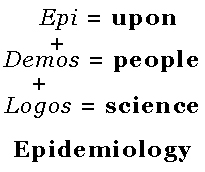
Contact our PIO directly to share health news.

770.339.4260
Public Health Week – Day 4: Epidemiology

What is Epidemiology? The word is derived from the Greek epi which means “upon,” demos meaning “people,” and logos which means “science/study (of).” Epidemiology is the part of the Health Department that studies the health in populations to understand the causes and patterns of health and illness in our community. The information gathered in these studies is then used to help prevent illnesses and improve the health of everyone in our communities.
If there is an outbreak of any disease, our Epidemiology and Environmental Health Departments work together to answer the questions: who? what? when? and why? They work together to investigate the source of infection to identify the cause, calculate the extent of the outbreak, and recommend and/or implement control measures to stop the spread of disease.
One of the diseases our epidemiologists looked this year at is norovirus. Norovirus is a gastrointestinal illness that generally causes vomiting and diarrhea. You may hear people refer to it as the “stomach flu,” but norovirus is not related to the influenza virus (flu), which is primarily a respiratory illness.
In the winter of 2012-2013, there was a rise in norovirus cases nationally. Our epidemiologists worked to educate our community about how norovirus is spread and what organizations and individuals can do to help prevent it from spreading.
A list of all diseases/conditions that must be reported to the Health Department can be found here.
Contact our PIO directly to share health news.


